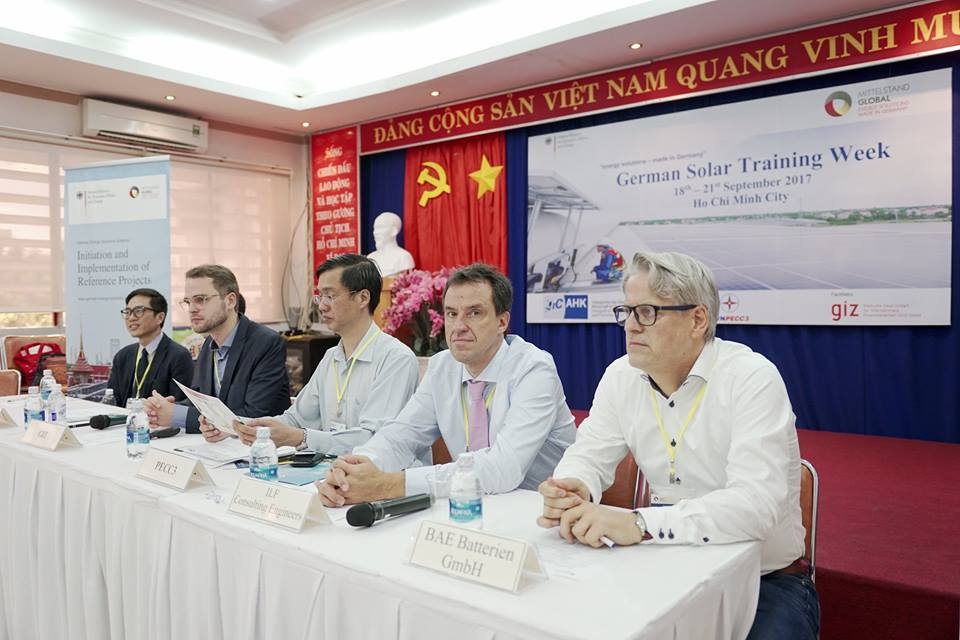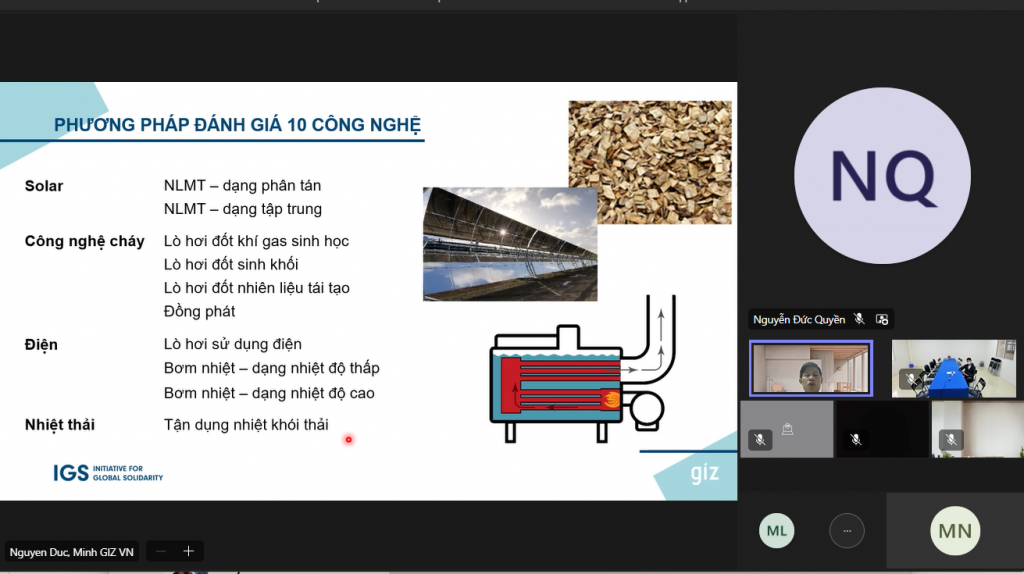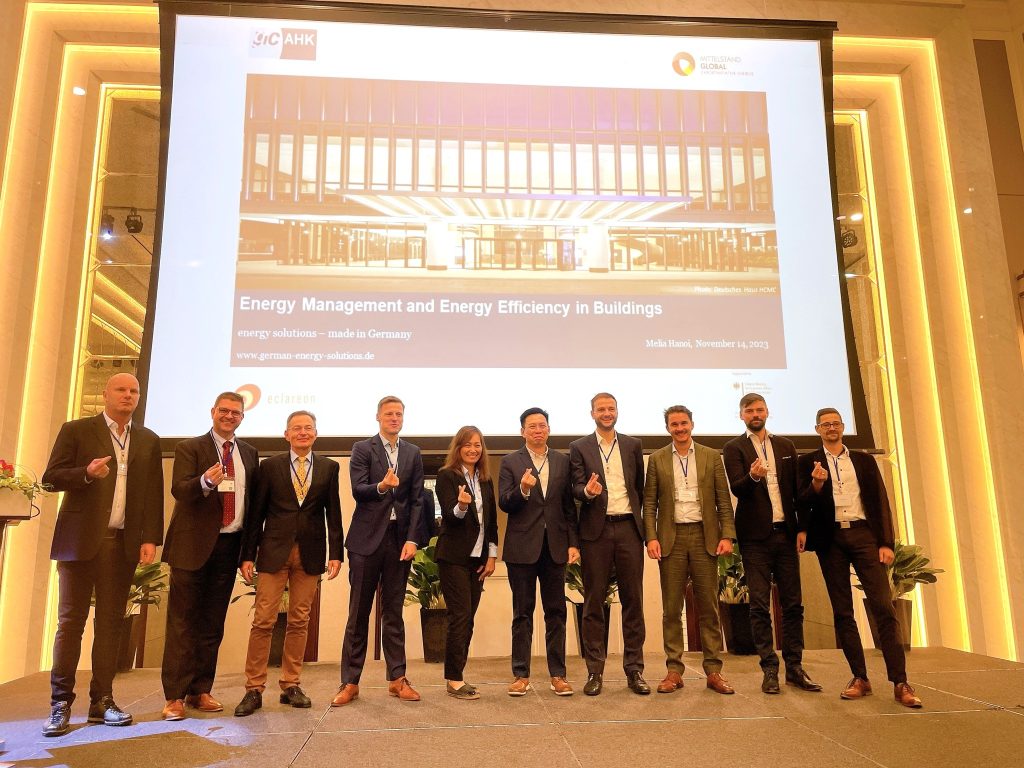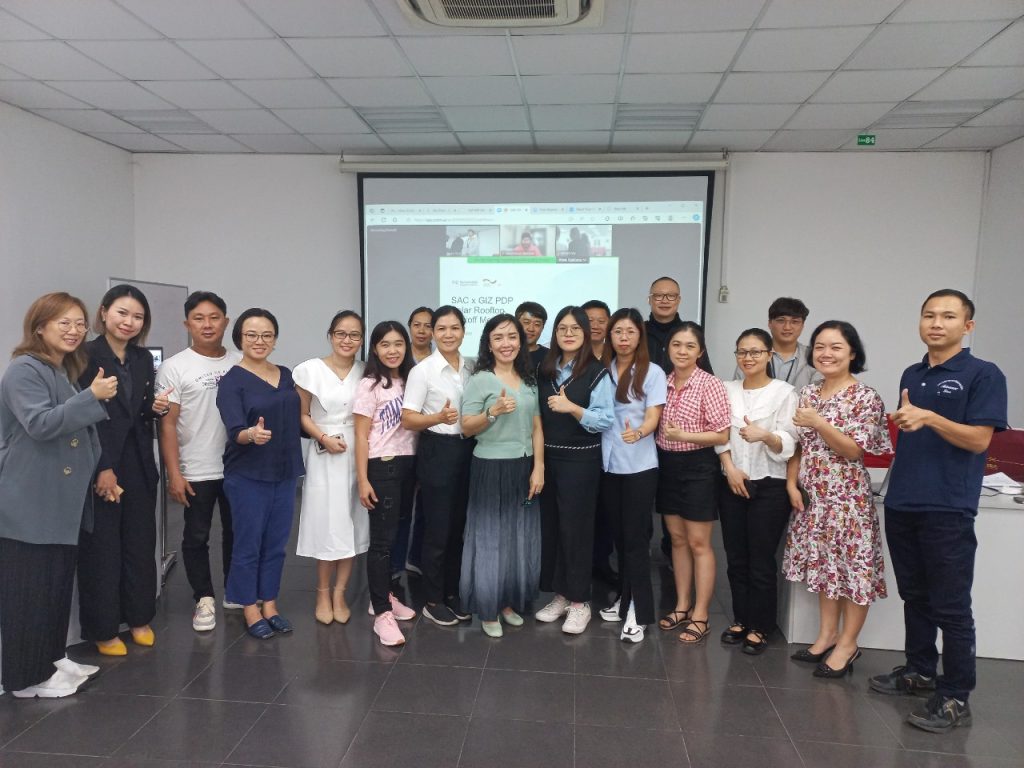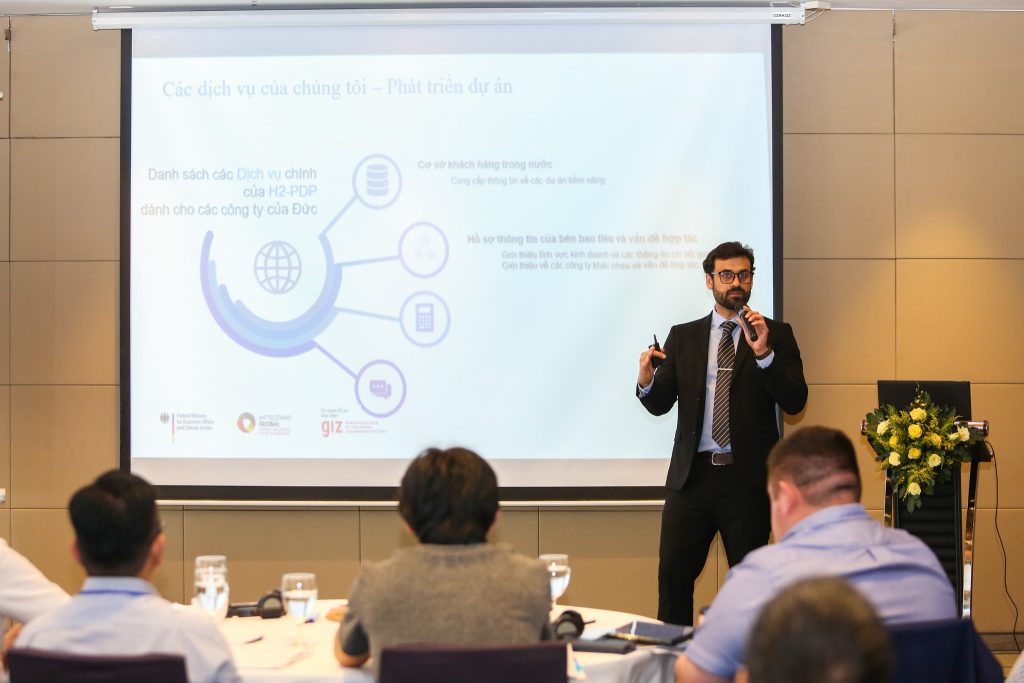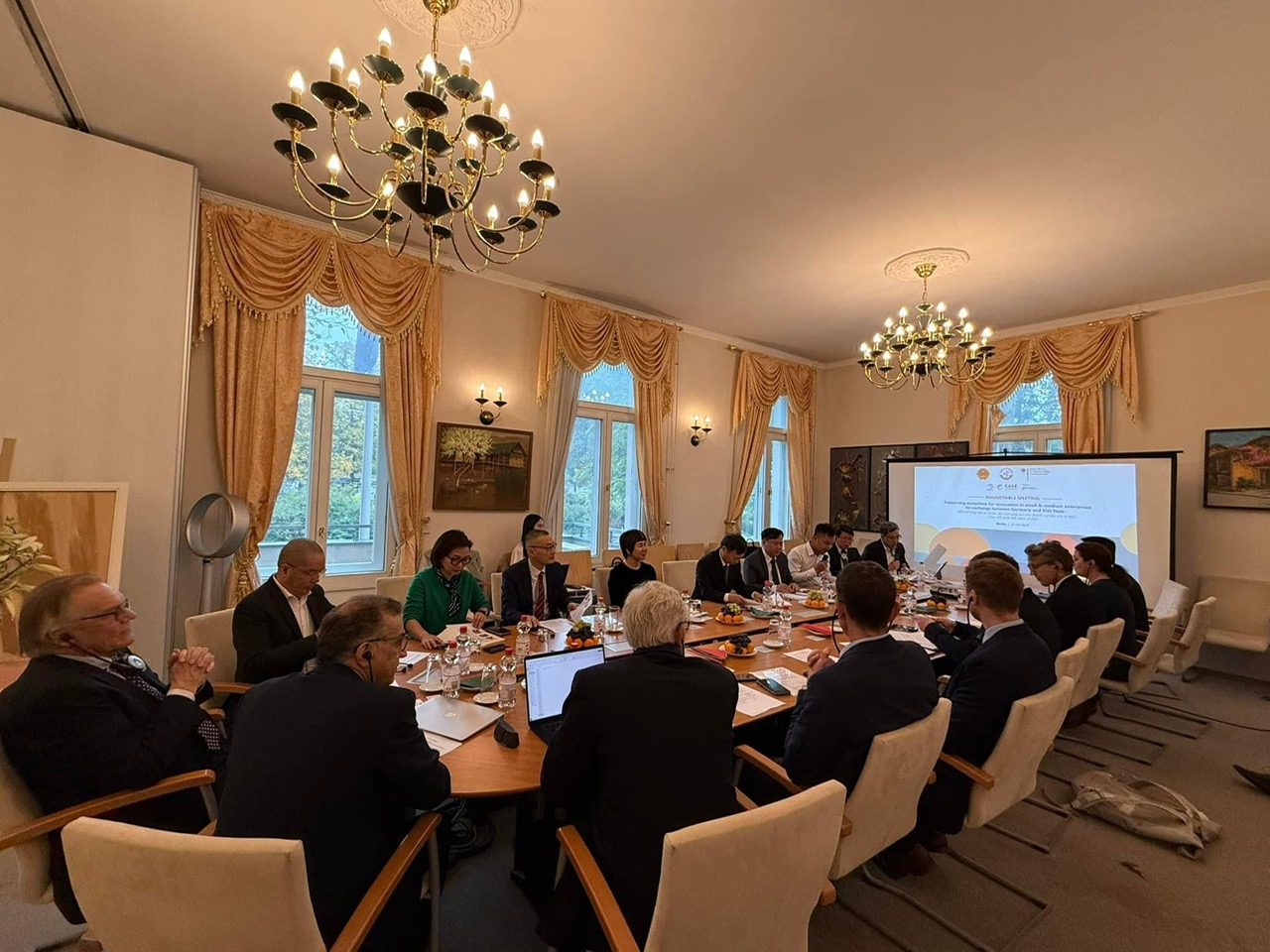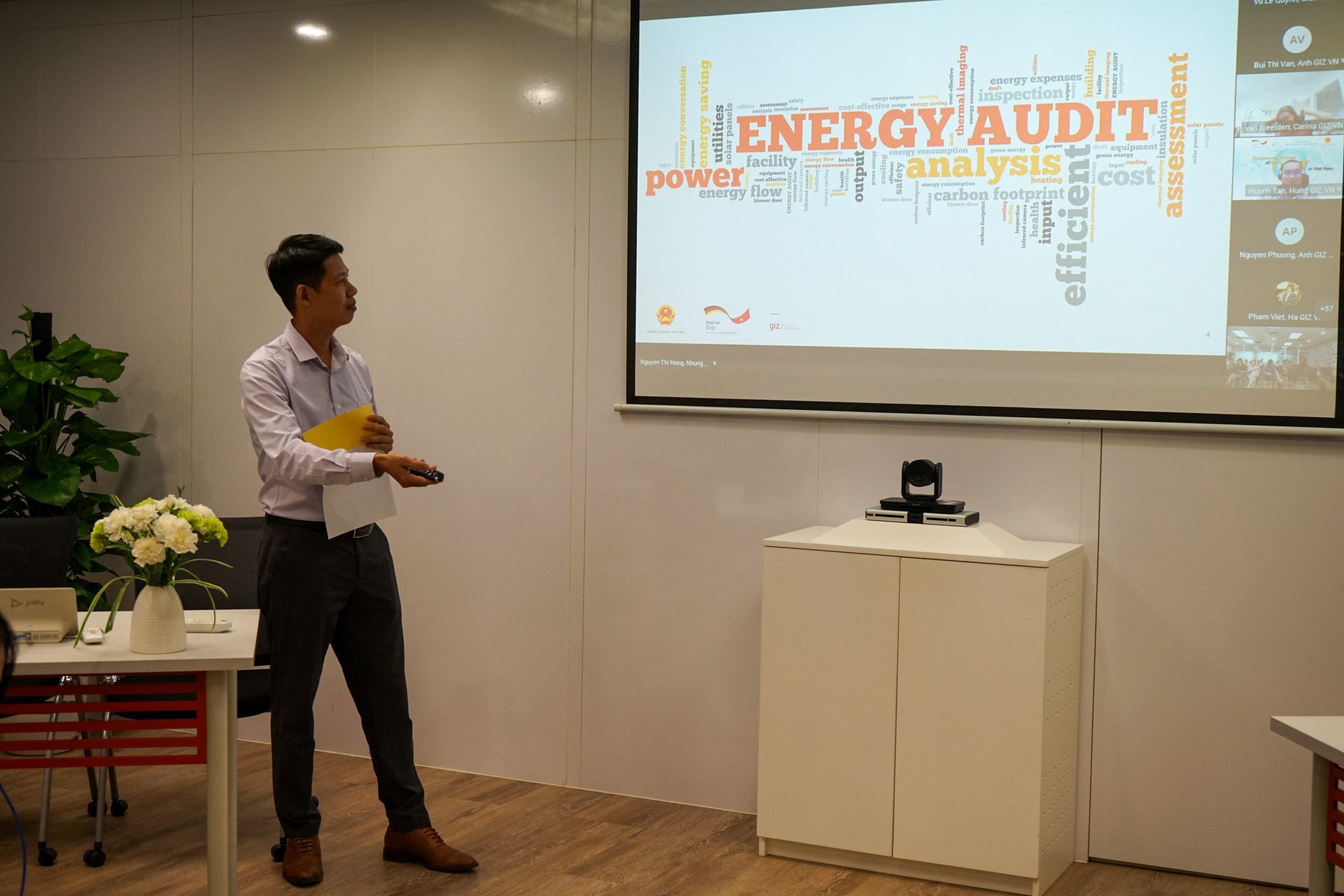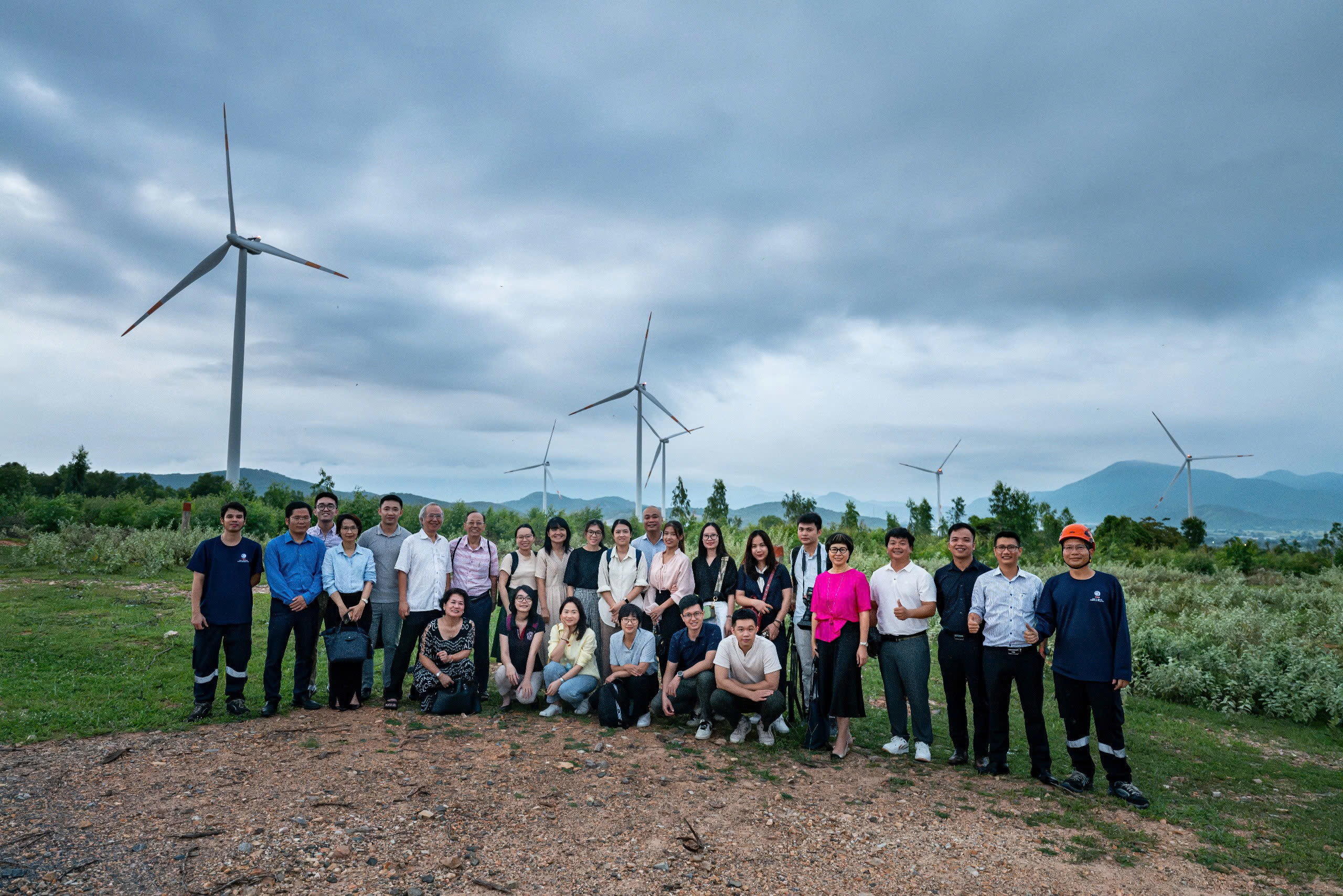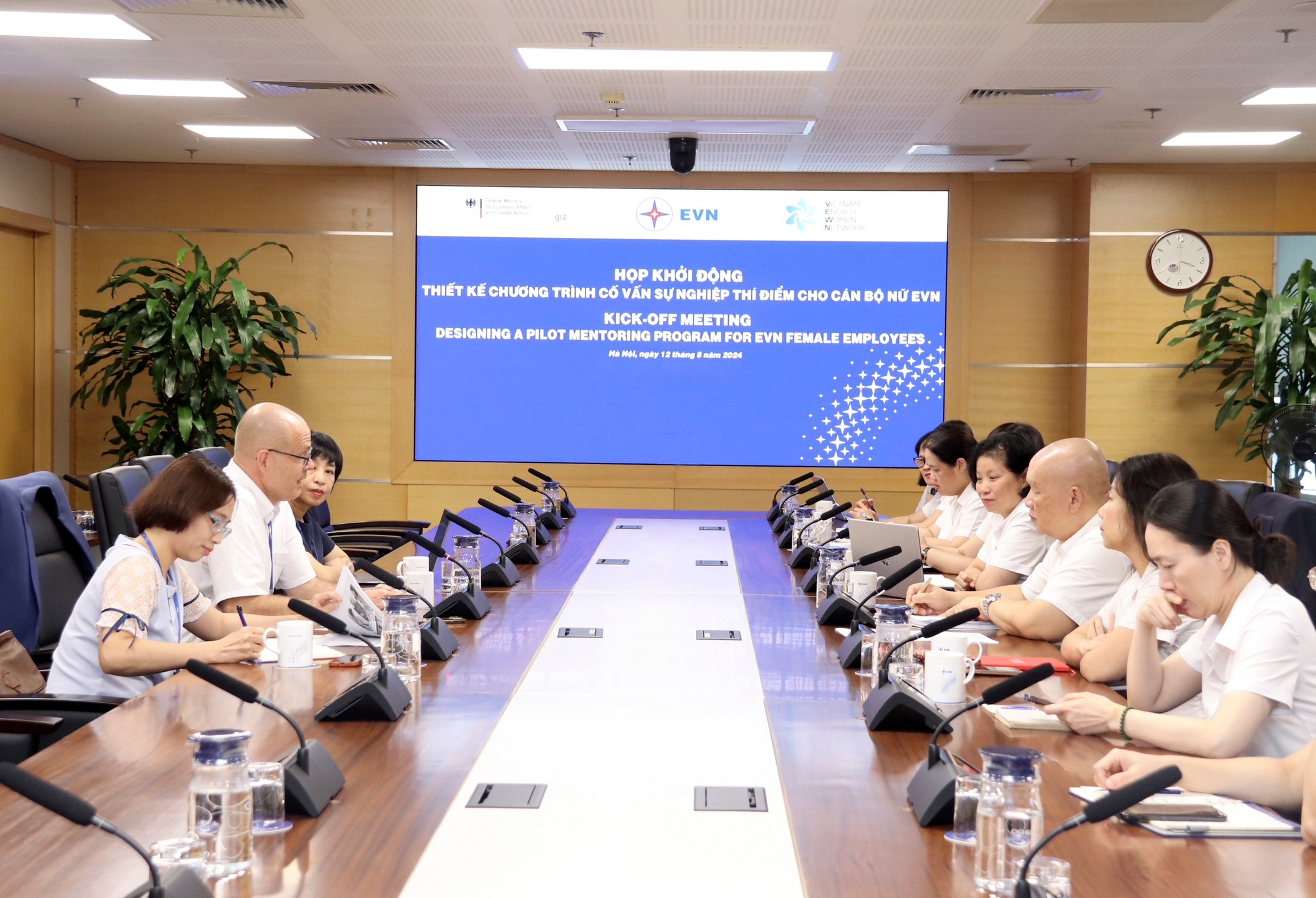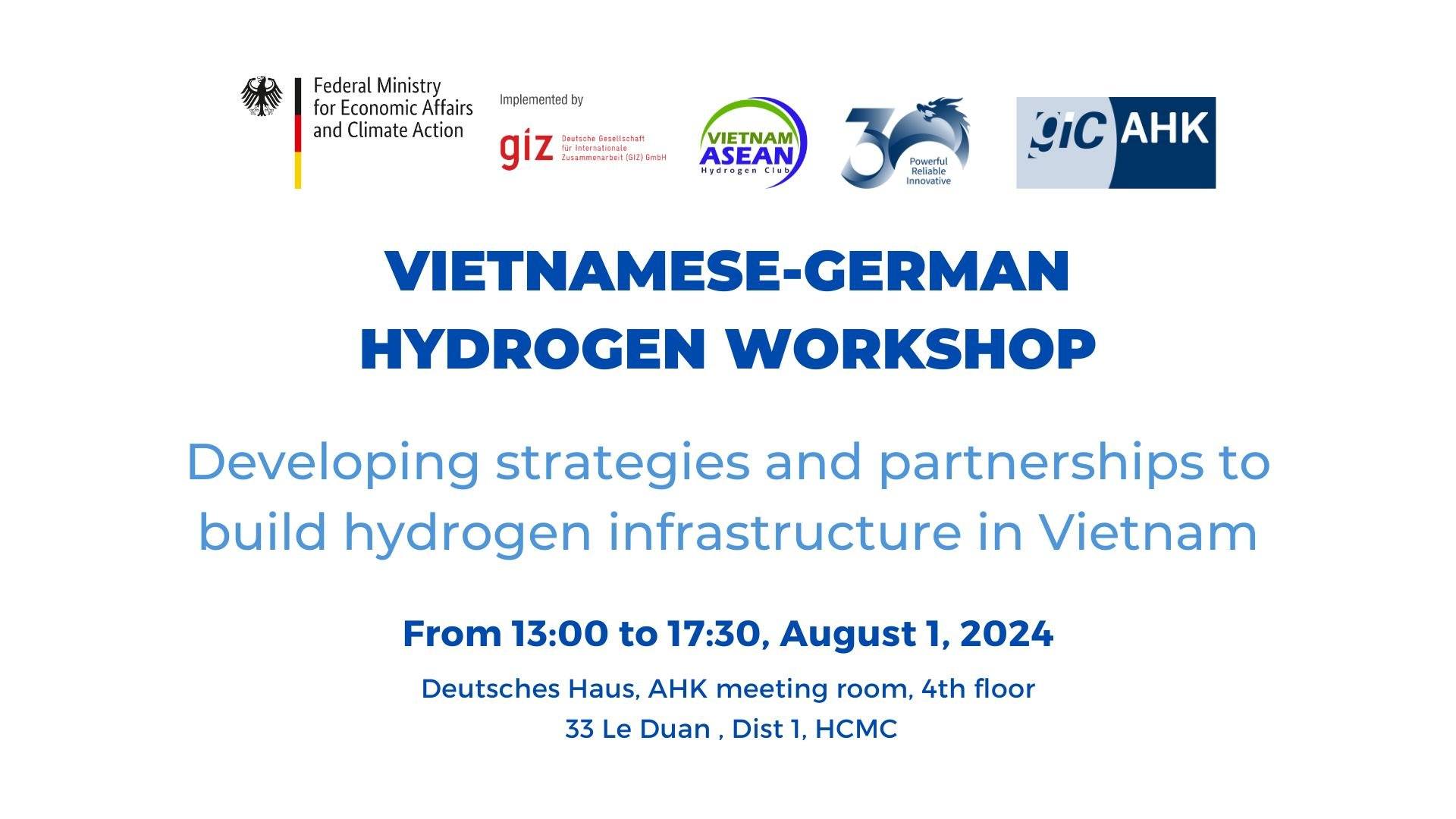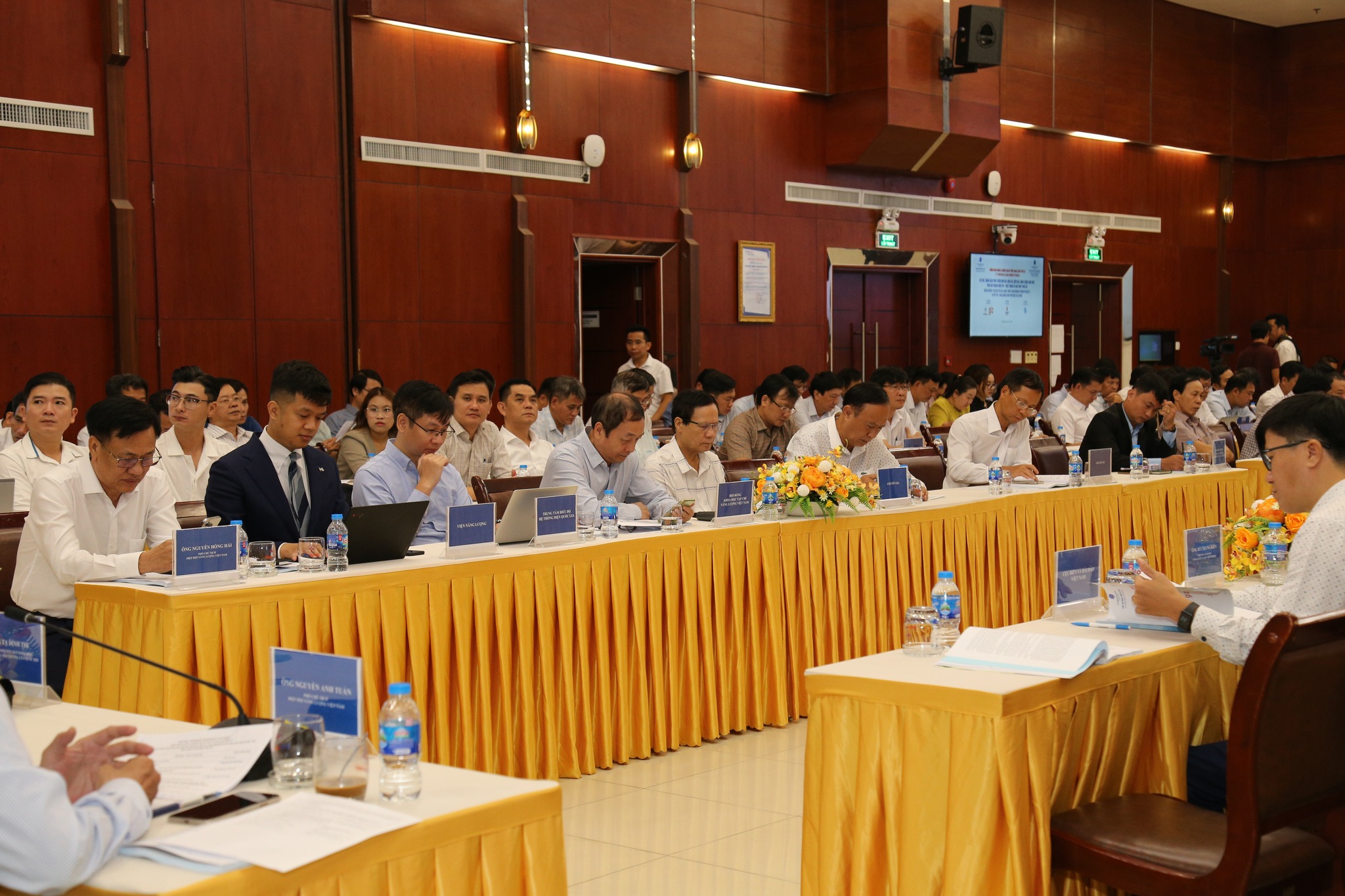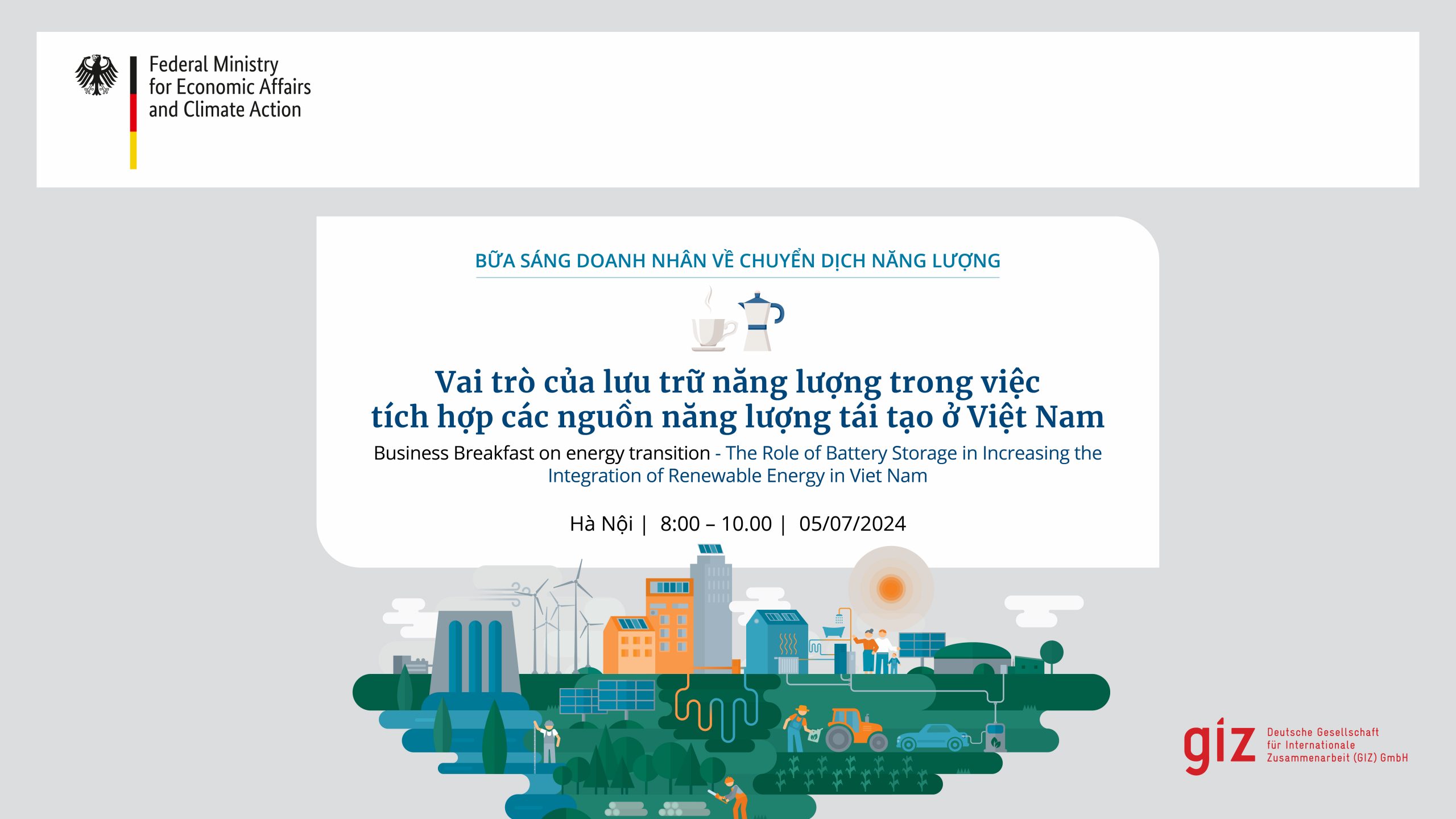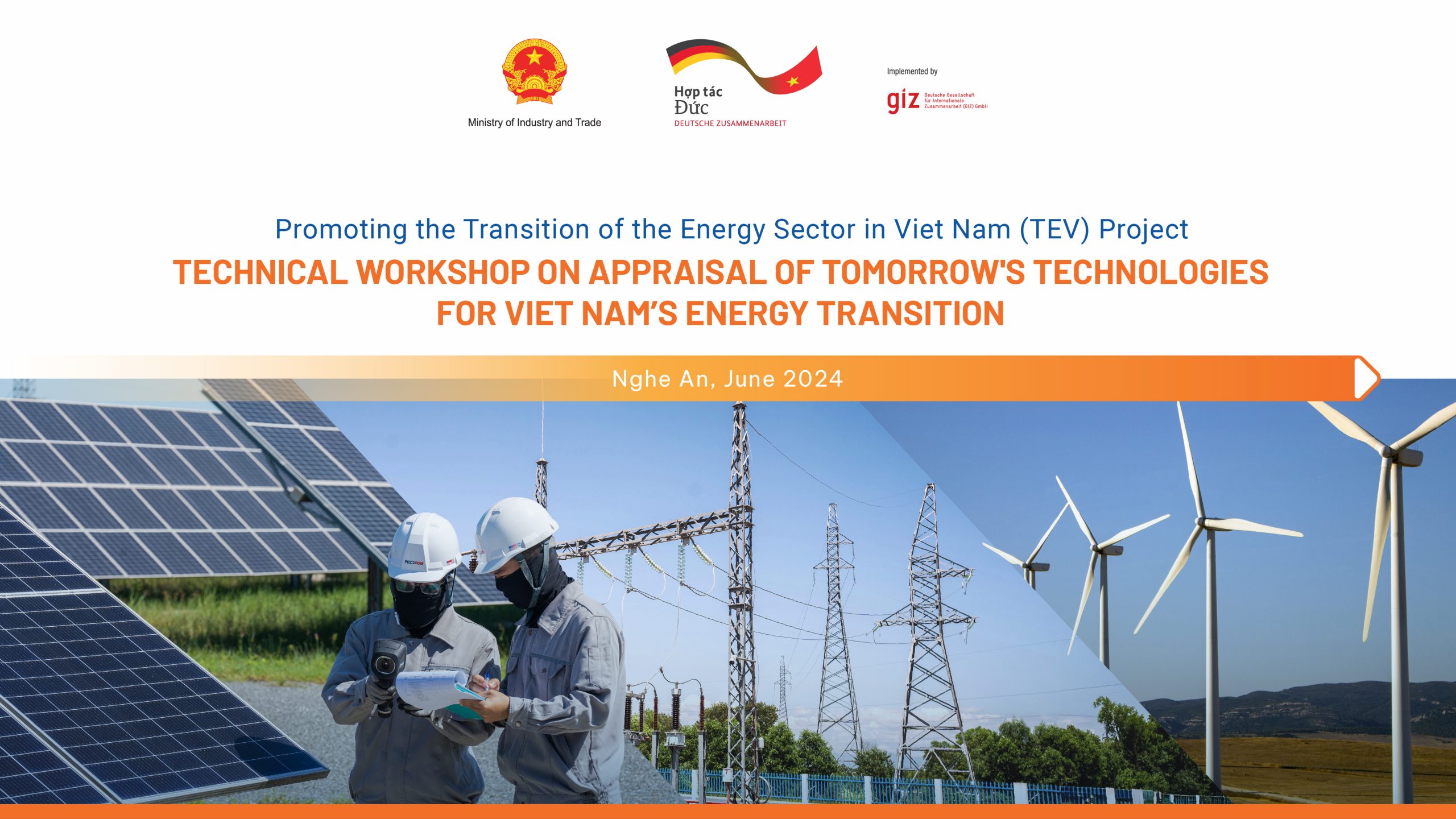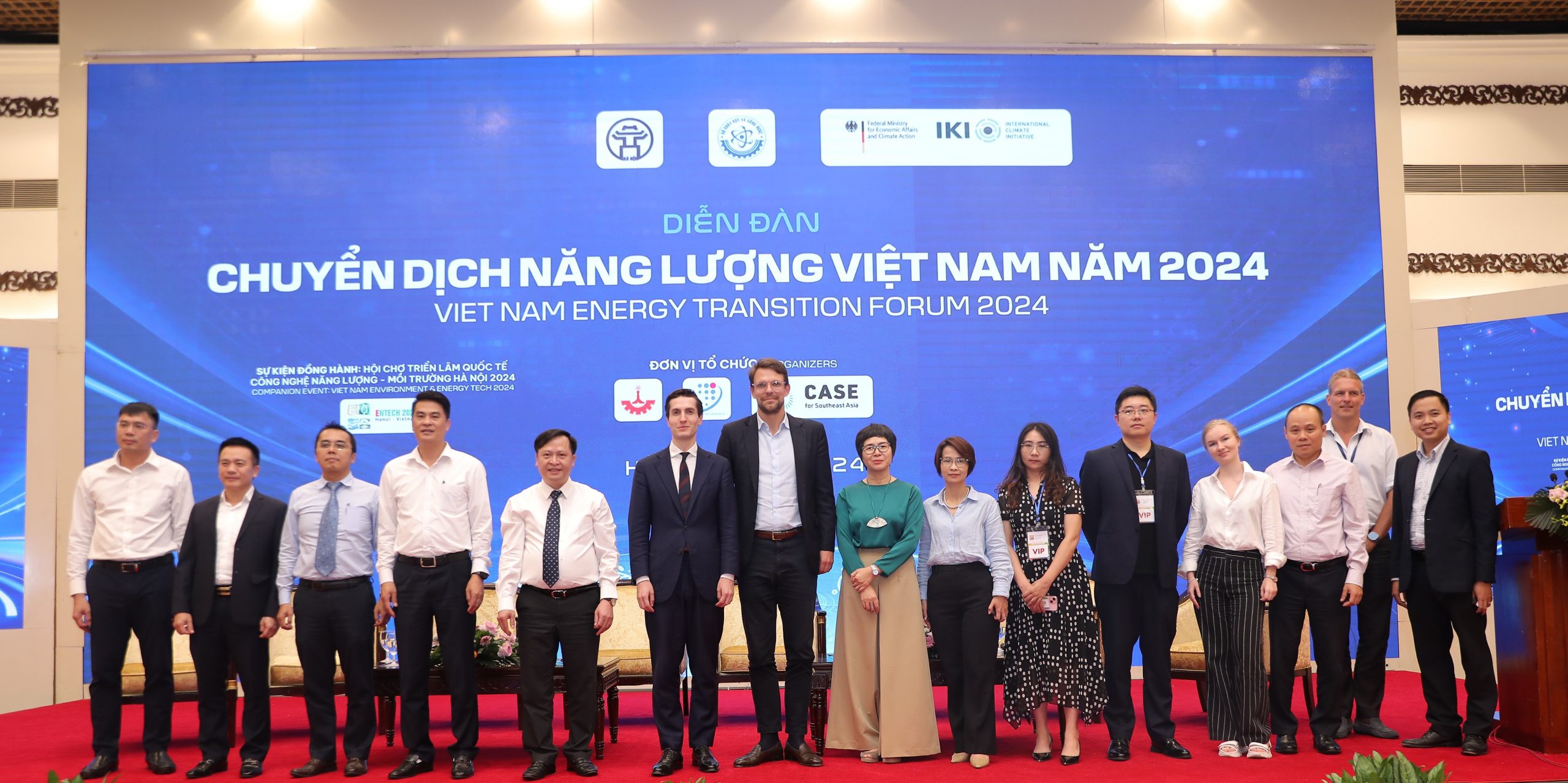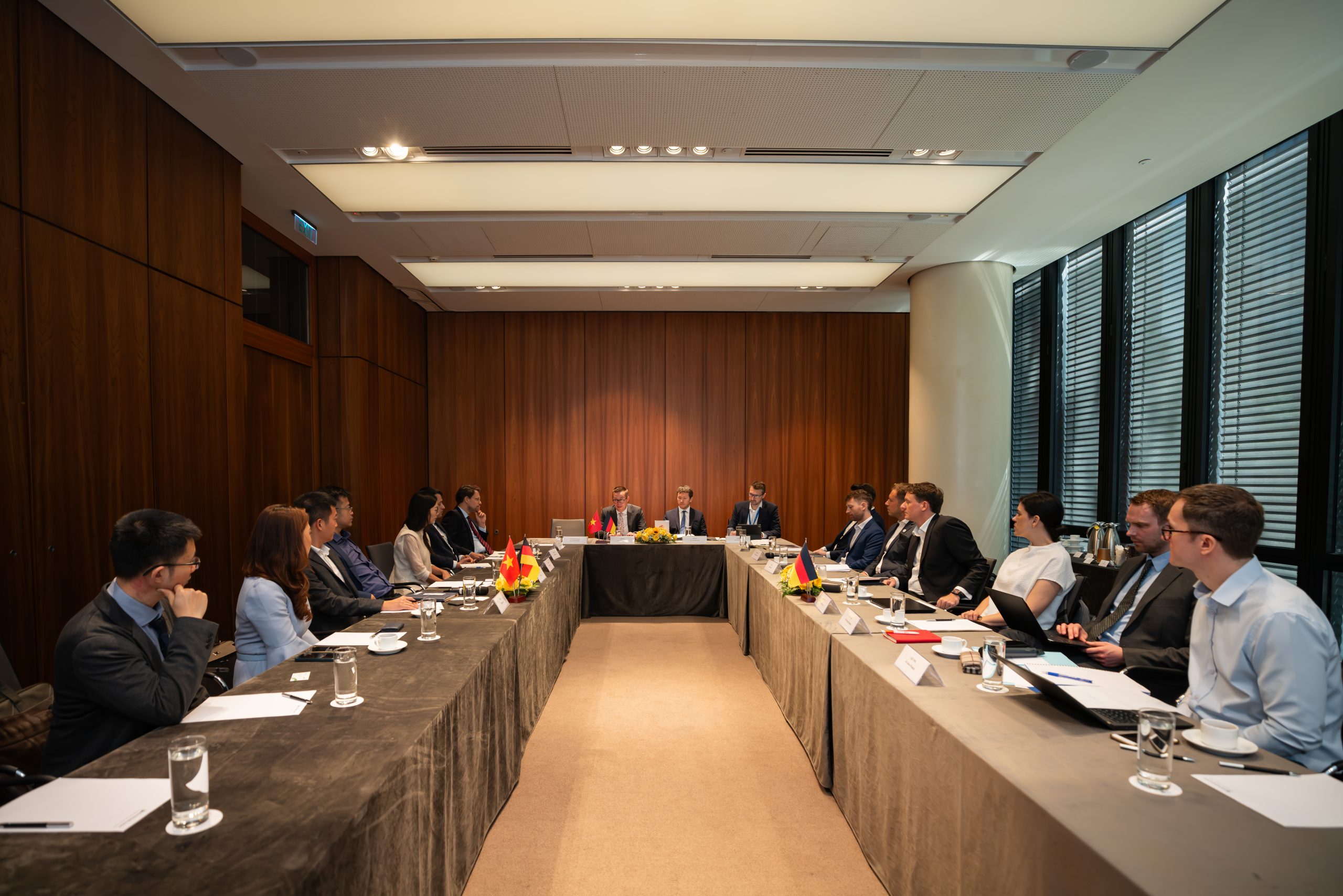Matching German expertise to local demand and creating business partnerships
On 18 September in Ho Chi Minh City, over 50 representatives, namely project developers and engineering service companies, from the Vietnamese solar sector participate in the first German Solar Training Week in Ho Chi Minh City from 18th to 21st September. The training week is organized by GIZ’s Project Development Programme (PDP) in cooperation with the Delegate of German Industry and Commerce in Vietnam (GIC/AHK) and the Power Engineering Consulting Joint Stock company 3 (EVN PECC3) on behalf of the German Federal Ministry for Economic Affairs and Energy (BMWi) within the German Energy Solutions Initiative framework.
Participants will be able to gain profound understandings on different aspects of the development and operation of a solar photovoltaic (PV) project, including system components, feasibility study, tendering and procurement, commissioning, operation and maintenance as well as rooftop self-generation application for industrial and commercial sectors. The trainings not only focus on fundamental knowledge but also provide practical experiences delivered by professionals coming from 6 German companies: BAE Batterien GmbH; BayWa r.e. GmbH; Conergy GmbH; ILF Consulting Engineers; SOLARNET GmbH and Suntrace GmbH, who have well positioned themselves in Southeast Asia region and are looking into Vietnamese solar market with great interest.
“With the German Solar Training Week, we aim to support Vietnamese enterprises to benefit from the expertise of German companies in developing and applying solar PV technologies. The training week also provides a platform for technology and knowhow transfer as well as facilitating business partnerships between companies from Germany and Viet Nam”, said Mr. Simon Bittner, Business Development Advisor from GIZ PDP.
The first Vietnamese legislation for solar power development which was introduced in April 2017, namely Decision 11, includes a feed-in-tariff for utility scale project and a rooftop project net-metering remuneration scheme, both at 9.35 USct/kWh. The Decision has manifested Vietnamese Government’s commitment to exploit the country’s expansive solar resource and to meet national solar targets of 850 MW installed capacity by 2020, 4GW by 2025 and 12 GW by 2030.
Decision 11 has also laid out a conducive legal framework to attract private investment in the most two potential solar PV segments in Vietnam: utility scale projects and rooftop application for high consumers from industrial and commercial sectors. There are quite a number of large solar projects in the pipleline now. Amongst local developers and investors, there are high demand for international partnership which enables knowledge and transfer of engineering expertise, as well as making sure that all stakeholders could benefit from the supporting schemes for the next two years.



